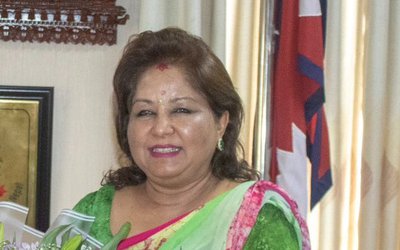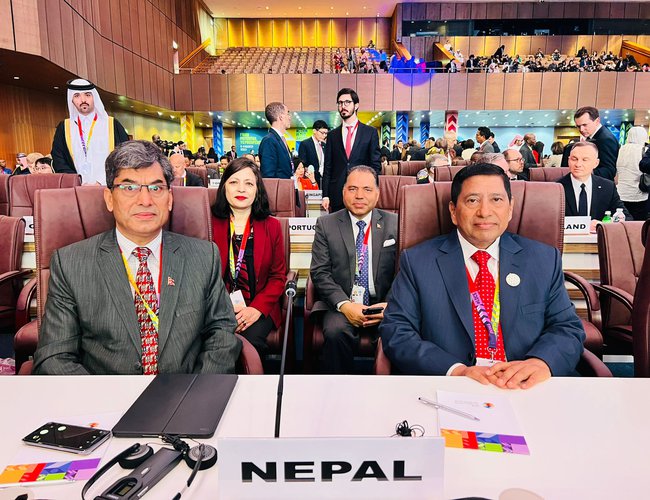
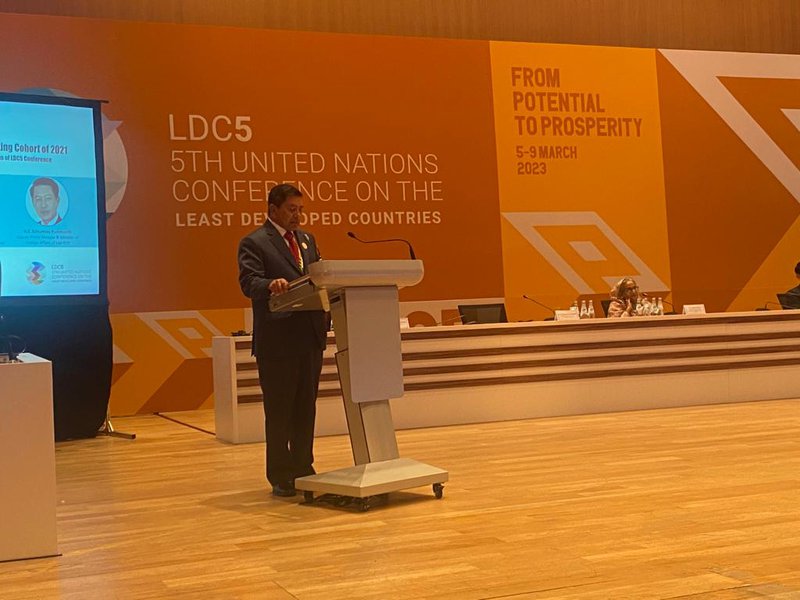
Deputy Prime Minister and Minister for Physical Infrastructure and Transport and Leader of Nepali Delegation at the Least Developed Countries (LDCs) Summit Narayan Kaji Shrestha has said that the LDCs are the worst victims of the climate crisis.
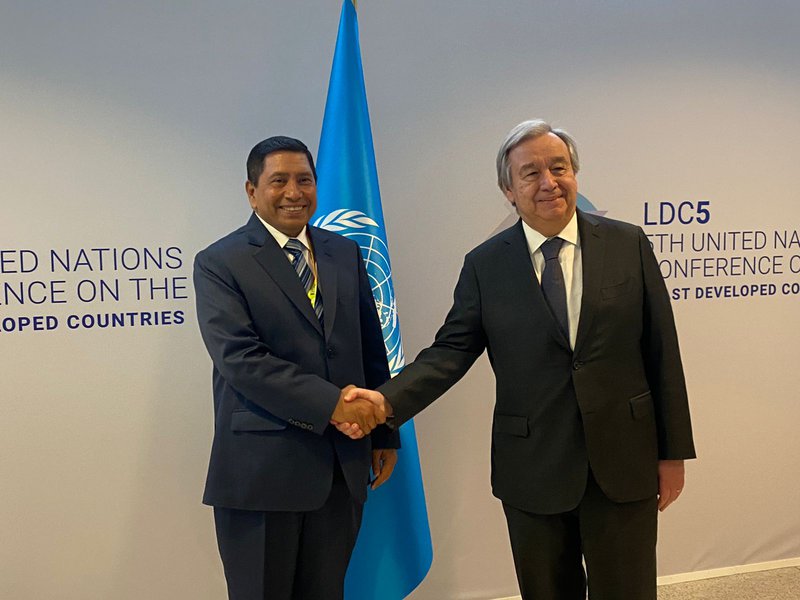
“As a matter of justice and for the survival of our economies and societies, the climate finance commitments made for adaptation, mitigation, loss and damage must be fully operationalized, with simplified access to LDCs.”
He said that similarly, technology transfer, including digital ones, must be ensured as they can catalyze SDG implementation, and help combat pandemics and other crises. Nepal is committed to achieving net-zero emissions by 2045.
We are implementing a transition strategy for smooth and irreversible LDC graduation. We are committed to exerting all-out efforts for the effective implementation of DPOA and Agenda 2030 for Sustainable Development to ensure that the graduation process would be smooth and sustainable.
He said that this is an opportunity to collectively persuade our partners for their greater support to our resolve to implement the DPoA and Agenda 2030.
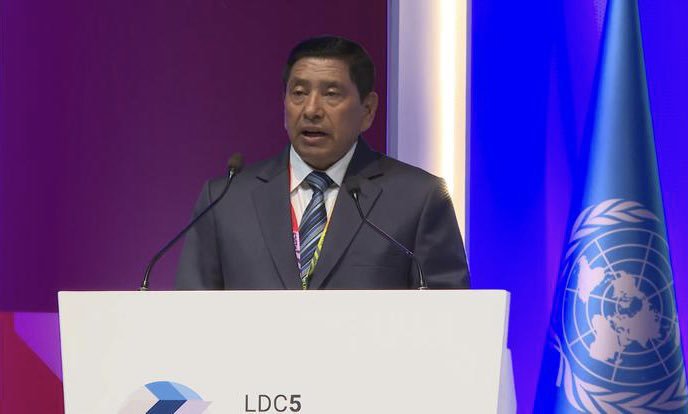
Addressing the summit on Saturday, DPM Shrestha said that LDCs are in need of massive investments in green and resilient industries, education, health, science and technologies, and agriculture.
"In the face of multiple crises, LDCs are in need of massive investments in green and resilient industries, education, health, science and technologies, and agriculture," he said, "More than ever, LDCs need quality, sustainable, and resilient infrastructures for energy, transportation, and digital connectivity."
Beyond incremental steps, we must take bold steps to reform the global economic and financial system with a view to making it just and equitable which would ensure the voice and effective participation of the developing world.
Even after the implementation of four dedicated programs of action since 1981, support measures have proven insufficient and the LDCs still constitute about one-fourth of the UN membership as we arrive in 2023.
In the face of multiple crises, LDCs are in need of massive investments in green and resilient industries, education, health, science and technologies, and agriculture.
More than ever, LDCs need quality, sustainable, and resilient infrastructures for energy, transportation, and digital connectivity.
We need robust social security and resilient health systems for protecting and securing the well-being of the most vulnerable groups of our society, and for developing and utilizing human resource potential.
LDCs need inclusive and effective institutions for better governance at home as well as at the global level. The fruit of development generated by globalization has eluded us for decades.
Doha Program of Action is a blueprint of renewed and strengthened global partnerships based on the principle of leaving no one behind. We, therefore, call on our development partners for concrete and substantial support in a spirit of shared responsibility and mutual accountability for the effective implementation of DPOA.
The Constitution of Nepal recognizes basic needs and services like education, health, food, water, and sanitation as human rights.
He said that Nepal’s development plans have internalized global policy frameworks like the Agenda 2030, Paris Agreement and UN programs for LDCs and LLDCs into our national plans and programs.
DPM Shrestha, also leader of Nepali delegation to LDC Summit, holds a meeting with UN General Secretary António Guterres (right) on Saturday.
- The Sentiment Of Monetary Policy Seems Focused On Increasing Eemand: FNCCI President Chandra Prasad Dhakal
- Jul 26, 2024
- Monetary Policy 081/82 Is Making The Economy More Dynamic: Governor Adhikari
- Jul 26, 2024
- Global IME Bank And Shashila Motors Signed Agreement Regarding Electric Vehicle loan
- Jul 26, 2024
- Lok Bahadur Thapa, permanent representative of the UN in New York, was appointed as the Vice President of ECOSOC
- Jul 26, 2024
- Leeladevi Gadtaula Became The First woman Chief Secretary
- Jul 26, 2024






